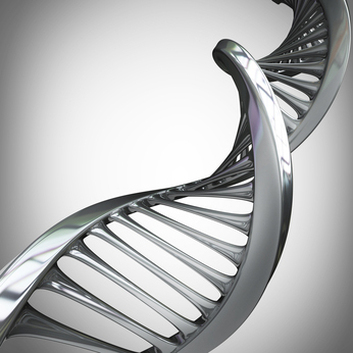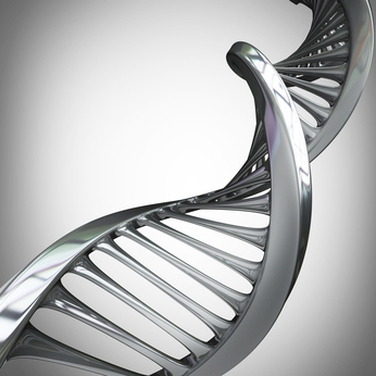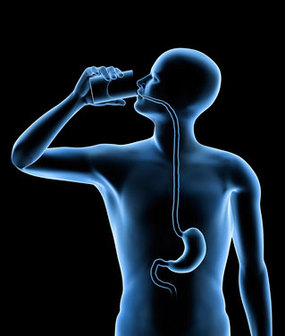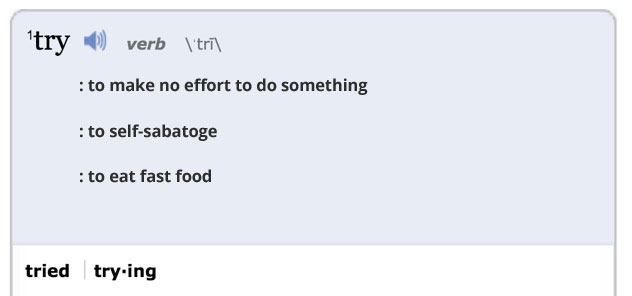|
Just Another Day at Elev8 Wellness
Parkinson's is a disorder typically associated with Lewy Body formation on the substantia nigra in the brain. It affects muscle control, movement and balance among other abilities. According to most experts in the field, it is an impossibly degenerative disease. This client, Jeff, came to me shortly after his diagnosis about six years ago. At that time, he was in crippling pain on his right side, through the neck, trapezius, shoulder and arm. His right side was the primary showcase of his Parkinson's. He had a number of other telltale signs; but his main concern was with doing his best to slow the progression of the disease. Within about a month we had ameliorated the pain and a lot of the right side rigidity. Through Active Isolated Stretching, some muscle activation techniques and various movement work I've learned over some 40,000 hours of experience in the field, I was able to help him accomplish something that no therapist had been able to do with him. Since then I've witnessed him move through speed, agility and quickness drills like a high school athlete on his best days. Parkinson's has such an affinity for severe muscle imbalance side to side; and I generally think structural lifts and overall conditioning with the lower body and core which are focused on good movement are the most important factors in helping clients of all kinds, especially those with movement disorders. Thus bench press places very low in what would be considered important or functional. That notwithstanding, Jeff's control had so IMPROVED (a supposed impossibility with this disease), that just for the hell of it I joked with him in July 2015 that we ought to go after a 200lb bench press. He looked at me like I was insane. His response was warranted, especially given that the first attempt was solely with the bar (45lbs) and he was tremoring slightly and rocking all over the place. However, ever so gradually, his control and strength improved, like it has with anything else on which we put our focus. In September he was stuck at 150lbs for most of the month. That weight was just not budging. We tried a variety of program alterations and he broke through that plateau. As you can see here in this video, he now smoothly, controlledly and easily reps out 155lbs. What you don't see here is the prior set: 200lbs. Jeff did what was an insane notion less than a year ago. And he got the 200lbs about a week before his birthday, his 60th birthday. That had become one of his short term goals; and he just knocked it out of the park. It's a feat he had never completed even as a young man. And he's just beaming because of it. By no means am I alone in the fitness world, performing mini-miracles in the face of allegedly incontrovertible disease pathology. To the contrary, many of my colleagues over the last 12 years in this industry have become increasingly knowledgable about how to progress the seemingly fixed, how to reverse the deterioration, how to soldier forward despite overwhelming challenges. There are many great stories like this. And at Elev8 Wellness, it's just another day. "Can't" is only an imaginary idea. #elev8 #fitness #parkisons #parkinson #wellness #health #noexcuses #inspiration #motivation #progress #excellence #fortitude #commitment #drive #grit #courage #belief #faith #overcome #persevere #improvement #evolve #gym #training #strength #endurance #balance
0 Comments
Body fat is not broken down by any kind of calorie equation. The breakdown, lipolysis, as it's known, is the result of six hormones elevated in the absence of elevated blood sugar. This is an incontestable biological fact. It is not my opinion. There exists no debate. This is not an article to examine one type of diet or program versus another. This is just the description of lipolysis. If you want to understand it, read on. Lipolysis is set in motion by any one of or the variant combinations of six hormones: cortisol, adrenaline, noradrenaline, growth hormone, testosterone and even ghrelin. Consider each. Cortisol, adrenaline and noradrenaline usually come along the same stress cascade. If you workout, take caffeine, or diet in such a way that drops blood sugar, your body will respond to those stressors with these hormones. You will unlock stored fat and use it up. This is why different nutritional and dietary regimens can work. As long as they elevate some stress response in the absence of insulin, they will help the person following that program to retrieve and lose stored fat. As such, different people will swear by slim fast shakes, others by weight watchers, some by vegan lifestyle, some by Paleo, some by sprints, some by endurance training, some by Crossfit and others by long walks. Guess what. They're all gimmicks. The principles don't, can't and won't change. So it's no surprise that different people with different lifestyles will find different programs more or less effective. Simply stimulate cortisol, adrenaline and noradrenaline in the absence of insulin and you burn fat. Growth hormone can be a little trickier. It burns fat. It fights aging. But it comes out in bursts and works on a tipping balance with insulin. Whereas stress hormones can be high while insulin is high (though this is bad), growth hormone cannot be high while insulin is high. The two largest bursts of growth hormone should be in the middle of your sleep and about an hour after you wake up. If insulin remains elevated, however, you cannot produce any meaningful amount of growth hormone. This is why people who eat a lot of carbohydrates, people who don't sleep well, night eaters and breakfast eaters all have a much harder time getting a six pack than their counterparts. This is also why most type II diabetics who start using insulin gain fat initially. Insulin can grow fat and does stop growth hormone. However, if you strike the balance right, a big blast of insulin clears the blood of glucose AND insulin. With the blood cleared of both glucose and insulin, ideal things can happen: you'll raise stress hormones, and growth hormone will be boosted. As such, in rare cases, administered just right, using insulin can make someone much leaner and more muscular. This may sound confusing, since at different times different hormones are good or bad. Thus different foods are good or bad depending on timing as well. Many elite bodybuilders use exogenous insulin and growth hormone because they are such powerful substances. But the dosing and timing is absolutely everything. Get either one wrong, and the result can be fatal. Also, if blood sugar drops too substantially (and you don't fall asleep permanently), the stress hormone release can be so high as to force your liver to dump more sugar in the bloodstream and now you're back at square one. It's a delicate balance. Testosterone is the king of fat burners. Many elite athletes use testosterone or a derivative steroid because it's so adept at increasing lean mass and decreasing fat mass. It is fairly gender and age dependent. This is why, on average, a 17 year old male is usually far more muscular, lean and powerful than a 65 year old female. The young male's and the older female's measurements of stress hormones are only a bit different. Their growth hormone levels are some different. But their testosterone levels are so incomparable that the concentrations are measured on separate scales. Results are obvious. There are a lot of ways to dramatically improve testosterone levels: sleep more, and sleep better; ensure that you get sufficient mineral intake (supplementing magnesium and zinc before bed and upon waking if need be); lift heavy weights and/or do sprints of some sort; avoid long bouts of stress (including endurance training and long cardio routines); eat saturated fats. The cells which make testosterone in your body CANNOT make any sex hormones without LDL, just an FYI. Look it up. This means that if you're taking a statin or avoiding dietary fat you could be making fat loss a lot harder than it needs to be. Ghrelin is the easiest to raise. It is the hunger hormone. So... get hungry. When your stomach is growling and hunger pangs are stabbing you in the belly right before you cave to the pressure and eat the storehouse of food, ghrelin is hitting its peak concentrations in your body. Unfortunately, this is a real willpower battle, so not one I recommend. But whenever you feel the hunger, you are just annihilating stored bodyfat. Controlled fasting and ghrelin have a lot of benefits actually, like curing all digestive disorders, resting your organs, accelerating detoxification and increasing your life expectancy by, oh, 50 YEARS! During elevated levels of ghrelin your body is hitting a freak out point where it is going to bend your mind and force you to eat, thus regrowing the bodyfat you've been starting to use up. Don't give up or give in. When you overcome that intense hunger, know that you've gotten a little leaner. Over time, as you practice this on a regular basis, you'll soon find that you haven't got any fat on your stomach. Be careful. Like all hormones, this should not be high or low all the time. But you should be able to get hungry and forego eating at least once every day - preferably in the morning. Even though we don't want to raise insulin at night, you also don't want to raise ghrelin prior to bed or you won't sleep well. Larger meals of greens and fats or small servings of high glycemic index carbs ( which will be cleared from the blood quickly) are better for the end of the day, so as to keep ghrelin and insulin low, growth hormone and testosterone high and enable stress hormones to spike right around when you are supposed to wake up. Oddly, completely different diets and exercise programs get some of the same things right and some of the same things wrong. The fundamentals don't change. No matter what, raise these six hormones as best you can; and minimize the duration you're exposed to insulin. But be careful. These are hormones. So timing is everything. If you eat and raise insulin before raising stress hormones (I.e. - food before workout) the result is proteolysis (lean mass breakdown) not lipolysis. Many people make this mistake, lose "weight" but don't get leaner. They keep getting fatter and weaker (skinny fats) despite a dedicated workout regimen and clean nutrition. They're working the timing equation the wrong way. Similarly, people who feel stressed and anxious all the time AND snack just keep growing a bigger and bigger gut. If they simply fasted through the bouts of stress, then ate like a pig after sprints or heavy lifting, they'd look more like a fitness model. I invite you to read on only if you are ready for tough love:
I've heard it from clients. I've heard it from employees. I've heard it from people. "I tried." No. You didn't. If success eluded you, chances are you haven't even tried trying. Trying means effort, executing the most basic steps which lead to an end goal. Any activity which moves you further from the end goal, by definition, is not trying. So out of your week of 168 hours, how many hours are spent directly actively moving toward your end goal? If it's less than 85 hours, you aren't trying, because you are spending more hours neutral and/or directly in opposition of the goal. First, consider business. Building any business is straight forward. The formula has never changed since time began: views/calls/introductions to connections, connections to leads, leads to sales, sales to give access to your product or service. Every company worth its salt has definitive equations from the front end of marketing to the back end of top line revenue. At Bally Total Fitness I would actually sit down with new trainers and we could calculate exactly how many people they needed to talk to every day in order to make however much money they desired and help however many people they wanted to help. All they had to do was talk to that number of people. That's it. Every trainer who did it was happy. Every trainer who didn't was complaining about some outward variable keeping him from being successful. But the truth is that no one ever prevented any of my employees from talking to members on the floor, calling members lists or chatting with people at any of the local businesses. It was only they who kept themselves from the first two and most important steps. But man oh man, would they swear up and down that they were trying so hard. They weren't trying at all. Next, consider clients. Every one of their goals is straight forward. The formula has never changed since time began: optimize hormone balance, move well and you will become as lean, fit, healthy and strong as you want to be. That's it. It's simple. All successful weightloss clients ever have improved their control of blood sugar and inflammation. There's no secret. There are ones whose nutrition wasn't great, and they controlled blood sugar through tons of activity. There are ones whose activity was low, and they controlled blood sugar through excellence in nutrition. Those who do both do so because they don't want to leave anything to chance. Those who do neither tend to talk a lot about how hard they've tried. Trying means working the steps. You aren't working the steps. The steps are not big difficult tasks. You either do them or you don't. There's no try. Ignoring call lists isn't trying. Refusing to talk to people isn't trying. Insisting on no marketing isn't trying. Eating candy at work isn't trying. Eating bread isn't trying. You aren't even trying. Stop saying you're trying. It's pretty audacious to eliminate the first two and most important steps and then expect a good outcome. You want the success without the fundamental? You want growth without marketing? You want to be lean without controlling blood sugar? No. Lottery winners are to be reviled, not glorified. Lucky breaks should be detested, not envied. Those born with silver spoons in mouth should be hated, not loved. Earn it. Work. Execute. Really, truly try. Success without merit is the highest form of weakness. So don't even covet such a thing. They who've had it don't deserve it. And neither do you... until you try trying. Nothing is ever as it might first seem. So allow yourself to take a chance and mold the world to how you would have it be. Think of how you imagined your life a year ago, five years ago, ten years ago, before you directed yourself to where you are. Did it all turn out the way you thought it would back then? Think back to what you thought it would be like to go through the various rites of passage before you went through them. Your fitness and wellness journey is no different, and will be no different in the future. Serendipity steps in. You learn more. You take the reigns or give them to others. And, truth be told, it can end up being so much better than you expected. I'll give just two illustrations of seemingly impossible circumstances where the outcome was nothing like what one likely expects. In doing so, I want the reader to consider his/her own seemingly impossible roadblocks (not just in your fitness goals, but whatever struggle you may be having in life). However, reconsider them. If these two examples show you anything, it's that you too can get past your roadblocks to something unimaginably wonderful. The picture above is of one of my clients who is the team lead for the American Men's Greco-Roman wrestling team on her trip to Iran for the 2014 World Cup. When she returned she regaled me with a hundred stories about how repeatedly pleasantly surprised she was at her interactions in Iran, and how the Iranians were repeatedly pleasantly surprised at the interactions with her. In a nutshell, each party underestimated the respectfulness, gentility, humility, piety and cultural sensitivity that would come from the other. And it resulted in her having a "media darling" week in the country of Iran. As I listened to her debrief throughout the week, it kept occurring to me that her Persian expedition was not too dissimilar from a fitness journey. That is, with a little bit of guts and taking a chance, beautiful impossible things happen. Almost every part of her trip was historic, in that a woman had never been in various buildings and forums where she went. And "knowing" what she thought she did beforehand, she could've easily just forewent the tour, stood this one out, played it safe and stayed home. The Iranian government could've easily declined entry and the various concessions they had to make to accommodate her. Instead, both boldly proceeded and people's worlds changed. Prior to my client's return, two weeks ago, I myself was overseas; and my son was standing on a canon outside the mansion once home to Laskarina Bouboulina (whose statue is next to him). Born in 1771 Bouboulina was the only woman in recorded world history to be named a full admiral until 2013. She had no female role model after whom to model herself. She could've easily said, "this is how things seem to be" and accepted her plight. But instead she challenged every imagined imposition in her path, amassing a furtive arsenal on the island of Spetsos, chartering the construction of one of the largest ships at the time, bribing Turkish officials to look the other way, and launching a series of offensives against the Ottoman Empire to ultimately play a pivotal role in the Independence of Greece. She was born to be just another Greek woman (in fact, she was born in a prison), quietly oppressed by the Turks; but she imagined and created something so much greater. Even when she had acquired a large estate, she was not content to stand back and enjoy retirement. Rather, she personally attended to brutal battles at the ripe old age of 50, which is REALLY saying something for a woman in the early 1800s.
Nothing is as it seems to begin with. And that's because you make things what they are. Holding back from a full commitment to your fitness is just like holding back from the rest of life. You think you know what it's like, so you shoot yourself in the foot before you take a step, and now you dare not put it forward because it could get hurt worse. Yes, it requires doing what maybe no one including yourself thought possible. But you know what? EVERYTHING EVER DONE once seemed like it couldn't be.  Even the Royal Society now concedes: genes aren't the explanation for the diversity of life; rather they are "merely a means of specifying polypeptides." In the recent paper, whose title says it all, "Genes without prominence: a reappraisal of the foundations of biology," the authors highlight that the incredible complexity in biology is summarized as follows: "everything depends on everything else, and phenotypes are emergent properties of their systems." What This Means: The observable characteristics and behaviors of any organism, humans included, are an infinitely complicated result (i.e. - an emergent property) from countless actions, interactions, and reactions (i.e. - systems); and no one culprit (least of all genes, let alone a single gene) runs the show. More importantly, this is the death knell for the belief that you cannot change. As already pointed out in the previous post, Genes Don't Make You Fat, a total externalization of self devolves into incoherence. Consider this line of reasoning: I'm not responsible for having that drink, the devil is, my genes are, my Freudian complex is, the society I live in is, Obama is, Fox News is, the Big Bang is, the Multiverse is, the alignment of the stars is, the lunar cycle is, etc. Even if we could prove some non-self blame game, what would be the practical long term benefit of believing in it? Human progress is about controlling nature, not looking for every conceivable way to not control it. Presence and Expression Are Not The Same: Think of the genome as a banquet hall. Everything in it, the attendees, the silverware, the cups, the punch, the entertainers, are genes. Knowing every detail about every attendee, every type of food present, every chair will not tell you what happened at the banquet, its purpose, or who did what with what or whom, or even how, when or why. Just because Pavarotti was there does not mean that he sang Nessun Dorma at 9pm, nor whether the deaf attendees enjoyed it, if they were still awake, nor whether anyone of the deaf attendees is a writer for the Times, nor whether any Times' subscribers cited it on their own blogs, nor whether it was a blogpost that went viral with Facebook likes. That Pavarotti's assigned seat was next to Sammy Davis Jr. might be of interest, but not if Sammy got sick and left the party before he had a chance to talk with anyone. If Sammy did leave early, did Pavarotti know about the extra slice of cake; and, if so, did he eat it or turn it down? How Epigenetics Crushed the Gene Myth: You need only one example to wrap your head around this: bees. The worker bee and the queen bee are GENETICALLY IDENTICAL. There isn't one single gene dissimilarity. Not one. That is to say, their banquet halls are set in the precisely same way down to the placement, angle and fold of each individual napkin. Not even one salad fork is a nanometer different than its counterpart in the other banquet hall. How Mutation Crushed Our Hope in DNA: It's fair to say that many once hoped the study of heredity and DNA meant we had acquired the lynchpin to understand and control all of biology. However, for over 100 years the fruit fly has been relentlessly pummeled with mutation, environmental pressures, and specific countless genetic alterations in innumerable ways in myriads of laboratories, the results of which are... fruit flies. That's right, they may be a really sickly, normal, or dead fruit flies; but changing their DNA can't turn them into a horse fly. Thus, DNA also doesn't provide the comprehensive explanation for why they are a fruit fly at all. Monumental genetic mutation and DNA alteration does not even seem to impact basic body plans for a particular organism. Because of this, the field of epigenetics has come into being and many researchers are now looking to the role of the "membranome." How ENCODE is Turning the World Upside Down: If we return to the banquet illustration, the discovery of DNA was like becoming aware that banquet halls exist in buildings. Knowing they were there, we could open the doors and look inside. The next 50 years we spent cataloging the contents of banquet halls, one in particular (that of humans). Within that time we surmised that the only important part of the hall was the caterer's detailed buffet plan and the rest is junk, leftovers from various attempts at making banquet halls, some successful, some less so. That caterer's buffet plan is responsible for the layout of the buffet, accounts for about 1% of the banquet hall contents, and is very similar from banquet hall (humans) to banquet hall (chimps). A project entitled ENCODE started in 2003 with the aim of finding out what purpose the other 99% of the banquet hall and its contents might have. Needless to say, what they've found is extremely complex - everything likely plays a role, and every role can change depending on what food is brought in through the kitchen, how the ventilation system works, what the restroom upkeep is like, and on and on and on. Why This is Important: There are few beliefs (maybe none) more empowering than the understanding that you can choose to be whatever you want. It's the bedrock understanding of a free society. Beyond that, it's true. Every 1/43rd of a second genetic transcription occurs, meaning that you literally become a different person every moment. And, in each moment, the sum adding up over time, you can "choose" (also a very complex system of actions, interactions and reactions) who next you'll be. As such, there are few beliefs more disempowering and pernicious to the human spirit than determinism. In my previous post of why genes don't make you fat, I took on this dark ages myth as it applies to losing weight; but that post did not go far enough. Think back to the queen bee. Remember, her genes are no different than those of her attendees or drones. Somehow, through a process so complex we call it random, "she" is selected to consume royal jelly continually. The royal diet suppresses the expression of certain genes and allows for the expression of others, resulting in not just structural and functional differences, but behavioral and selection preference differences. Why We Keep Getting Sucked Back in: Genetic determinism is just another attempt at outsourcing responsibility. The logical conclusion of any determinism is that something else way down the line did it. Though seemingly more contemporary and in vogue, genetic determinism is no different than all its predecessors whose logical conclusions were bigotry, slavery, apartheid, the caste system, and extermination of "others." Consider: Deterministic X made me superior; deterministic Y made you inferior. Insert whatever you want in place of X and Y and it doesn't give us any reason to think we can, could or should change. But if determinism in any form is such apparent nonsense, why do we keep reformulating it? This is perhaps a bit too philosophically hefty, but let me venture a guess. We want simple and elegant answers. Life is neither; so it's answers are most likely messy and overcomplicated. Despite that, we seek a path of reductionism, explaining psychology by biology, biology by chemistry, chemistry by physics, and physics by physical laws, which are merely descriptions of how the tallied constituent bosons and fermions act. Why do they act that way? Well, just ignore that question. In quantum mechanics, theorists have admitted defeat in trying to concretely explain the most fundamental particles, coming up with very sophisticated abstractions like superposition, entanglement and uncertainty. Remember, these abstractions are supposedly the floor level of why you are the way you are. Never mind that at the bottom of reductionism is our understanding and estimation of the basic, the very formulation of which is derived from actions of the mind (i.e. - reason, observation, testing, prediction, etc.) or more properly psychology, the same point at the top of the reductionism tree that we were hoping to explain. This annoying little bugbear of a paradox shows you that there is no such thing as a drawn line of reductionism, but more so a circle of evaluation. Then, when one adds to the mix the confounding concepts of consciousness, mind, change, freedom, will and effort, well, it gets really difficult to neatly explain or explain away outcomes via reductionism anyway. Determinism is anti-science. At least in biology, it is neither empirical (we cannot repeatedly test, observe, verify or falsify it) nor pragmatic. We can't get to it by means of reductionism; it just seems like we must. It is an assumption, an unproven and unprovable article of faith, an axiom upon which we fit the data. It is a wall, beyond which there is no inquiry, no challenge, and no choice. Thus, its explanatory power is bankrupt. Worse, it carries no weight to compel a better self. Everything just "is." There's no "ought." But isn't that its charm? Isn't that its elegant appeal? Determinism is agelessly wrong, but yet simultaneously amenable to every current popular trend. And I think that's how we keep getting sucked in. What You Can Do About It: Remember the queen bee? You know how she becomes the queen bee? Royal jelly. Great. But do you know how she stays the queen bee? By acting like one. What does that mean? Among other things, she keeps eating royal jelly. You see, it isn't enough to select a certain outcome in the banquet hall for a day, a week, a month. If you have accorded a certain function and purpose, the opposing epigenetic expressions to hold your new course must be more than commensurate to the previous inclinations. More plainly, you have been expressing the genes that have put you where you are for a certain amount of time. You must express the genes that will put you where you want to be for at least as long. If you want to be the queen bee, eat Royal Jelly for at least as long as you haven't been. By myself I ran, scrambled, trekked and hiked to the top of Mount Ithome this morning and took this picture. At just under half a mile tall, it's hardly the most difficult climb in the world, or even here in Greece. Nonetheless, it is the real deal untamed trail, so much so that it thwarted the Spartans from a siege in antiquity. The beauty, majesty, and solitude more importantly brought about a lot of thoughts about how to live "with an empty glass."
You see, everyone told me not to go. Yesterday, at least five others planned to climb to the Byzantine monastery on the peak where a temple to Zeus once stood some 2500-4000 years ago. So today I leapt out of bed before dawn to ensure I saw the sun rise at 6:20am from the summit. When I arrived at the foot of the mountain where my wife's family's house stands, I was subjected to naysaying and gloom and doom prophecies for the next 90 minutes, first in Greek, then a Greeklish mix, waylaying me from what I had said I was going to do. It was a little rainy and somewhat overcast, so to everyone else this was a valid excuse to turn their backs on the word they had given to themselves and their peers but a few hours prior. To me, I had said I'm going to do it, so as far as I'm concerned it's already a historical fact. I soon realized that sitting around any longer was only going to surround me with more negative speak. So I sprinted up the foothill, in the wrong direction. Realizing my mistake, I turned around, and then found the right path up as the distant church clock chimed. Getting lost happened about four more times, since my impetuousness left me without an experienced guide or any companion for that matter. In solace I plied through the rocks, fallen shale, slicked stone faces, billy goat crap, giant spiders and a handful of snakes. There were no toughmudder judges, Gatorade stands, paramedics or guides of any sort. I didn't know where to go, except up, through some of the most thickened terrain on earth. If you get on a side track and fall and break something, that's it. You're done. The search area would be several square miles in totally cloaked craggy brush country. Maybe the locals have some hunting dogs that could sniff you out. But the fastest road from Athens is almost three hours in a speeding car. Somehow though, it seemed safe and easy. And as I approached the top, a lot of philosophy flooded my head. After all, this is the birthplace of Plato. Particularly striking to me was the petrification that comes by over-analyzing a plan to which you've already committed. I thought of the readiness the human mind has to entertain worst case scenarios, instead of victorious achievements. And I thought of the age old question to determine whether you are an optimist or a pessimist: is the glass half empty or half full? Many people have come up with all kinds of cutesy answers to thwart this very simple question: there is no glass; a half glass is all full; a full glass is filled with a full half glass, etc. But on the way down from the mountain something more profound dawned on me. That is, I'm a realist. I realize the glass is half empty. But because of that I have room to fill it more or to enjoy drinking it down, emptying it to be filled anew. As such, I am a supreme optimist, enjoying any of an array of possibilities from my accurate assessment of the state of things. Conversely, I know a great many people who see the glass half full. But because of that they dare not fill it any more, nor dare they enjoy imbibing any of its contents so as to preserve what little is left. Why unsettle such perfection after all? As such, they would suppose themselves to be optimists, but are in point of fact supreme pessimists frozen so often in a state of inaction. Half empty I saw the mountaintop and drank deep the last contents of the cup in a fulfilling way. Half full they sat in its shadow hoping to preserve drops which they would only lament later. Peering out on this scene, I could, and you can, see the village of Mavrommati below, Ancient Messene beside, Arsinoi ahead and over fifty miles all they way down to the seashores of Kalamata and beyond. Standing at its foot, you can see only the long path up. So today you have your own Mount Ithome in front of you. You can call yourself an optimist and stand in awe of the beauty in front of you. You can call yourself a pessimist and not even enjoy the view. Or you can climb and clink a toast at the top with whatever glass you prefer. Empty just means I liked the drink. Empty just means possibilities.  Follow-up: It's a critical component of business, fitness and goodness. Though you may find the first two unremarkable, the latter may be a little unexpected. However, the very recent passing of a former client made the ubiquity of the goodness of follow-up really dawn on me. When I first entered management about a decade ago, I found that running a successful team without deleterious influences relies heavily on follow-up. You see, a lot of people pay heavy lip service to setting proper expectations. And that is true, especially as the team you manage grows. But expectations are worthless without revisiting them, evaluating performance in light of them, and the like. Likely, many people steeped in the business world know this well. Even just in sales, many a successful sales rep knows that their paycheck is contingent on how well they execute follow-up with leads, especially dried up cold leads, former buyers, ex-partners, etc. But follow-up goes beyond that. As you may have caught, by the title and intro, I see something greater in follow-up. I'm not just talking about having performance reviews with employees or calling old prospects. I don't just mean to say "keep up your network." In fact, as far as fitness is concerned, I'm not even talking about accountability and tracking. When following-up with yourself, I'm not just talking about how to keep yourself on track. I'm talking about the connected worldview. That is, follow-up itself is an affirmation of the wholly implausible belief that things can, will and/or should change. It is a faith in the possibility of humanity. When you follow-up you are exercising an impractical hopefulness that people will change, that the negative worker will become an achiever, that the depressed client will finally commit to wellness, that you can affect goodness, that giving up isn't just bleak, it's unacceptable. As such, follow-up is a tangible credit to the possible, to hope, to change. Paradoxically, the seemingly impractical becomes essentially practical. Three days ago, a good friend of mine sent me an article written by a strength coach who was bragging about how he's so glad he never was in sales, and, therefore, in his opinion, he never had to fake being interested in people or listening to their excuses and equivocations. The next day I received the news that a former client whom I had stopped trying to call about a year ago (because he was no longer responding) had ended his own life. Now, I have dozens of examples of unlikely people whom I never gave up on; and years later finally had a breakthrough. But just one example like this really sticks in my craw. Follow-up is an imperative for those of us who would create a better world. It should not be a number on a list. It has nothing to do with making a sale or being fake. It cannot be reduced to a function of keeping up your network. It is not a mechanistic method for keeping yourself accountable. It is something far greater than all of those: it's a part of being good and a genuine caring for others. It is part of a worldview that believes in making good. Do not be disheartened when people hang up on you. Do not give up hope when it seems like the path doesn't end. Do not worry about being viewed as a relentless bother. Don't allow people to bully you out of your work by charging you with ulterior motive. Follow-up with: that almost-forgotten New Year's Resolution; that former complaining customer; that unyielding debater; that despondent employee; that estranged family member; that judging critic; that long-lost friend; that "who-I-used-to-be;" that non-compliant team member; that tail-spinning stranger; that lost familiar; that straying youth; that disempowered elder. Follow-up. Follow-up. Follow-up. It is the goodness imperative. Follow-up tirelessly, happily, unendingly. Someone's very life depends on it.  "Panting, breathing heavily, after a series of well-coordinated plyometric exercises" you might think uniquely describes some recent incarnation of Crossfit or P90x. I was actually talking about a workout that I was run through by seasoned trainers back in 2004. Unfortunately, "new to you" has become the new innovation. But even the most cutting edge of exercise principles aren't just old, they're archaic. The foundations of exercise science were laid in prehistory and haven't changed since. There are a finite number of joints in the body; and so there are a finite number of movements it can do. In reference to progression, matters are equally straight-forward. Taking a block of time, increasing the demand in a systematic manner within that time, and all in order to produce a desired performance or physiological output is what's known as periodization. It works on a principle of progressive overload within a prescribed timetable. No matter what late night infomercials or clever web advertisements tell you, it's not new. Russian strength coaches created complicated, intellectually rigorous and highly effective sports periodization for Olympic athletes more than 50 years ago. In fact, the ideas of homeostasis and adaptation in the context of athletic domain come directly in fully refined format to us from the late 19th century. Thank you, Walter Bradford Cannon, and (later) Hans Selye. So what's the commotion all about when a new craze hits the scene? I can't tell actually. Every ancient society with a military had codified, effective exercise periodization AND an equally demanding and stratospherically potent mind-training. They needed the fastest, most powerful, most agile, most enduring force of human beings possible. Why wouldn't they? I'm not trying to take anything away from anybody so much as put our modern practices in their proper historical context. Does anyone really believe that ANY gym is producing athletes who could go toe to toe with the AVERAGE Spartan hoplite? From the perspective of strength training, progressive overload has been around about as long as we can tell in written history. The sixth century BC figure, Milo of Croton, was allegedly capable of picking up a grown bull on his shoulders because, since childhood, he had daily lifted a baby calf, it ever growing bigger while he was ever growing stronger. Even after removing storytelling embellishment, it doesn't appear that our highest performing athletes have broken any ground that someone else didn't break thousands of years ago. From the perspective of endurance training, all modern feats are a joke. Ultra-marathon, you say? Cute. The Native American Raramuri would run 200 miles through deadly canyon terrain, barefoot, without a break, and without someone handing them a goo packet or Gatorade every few miles. Ironman or Tough Mudder? Read Xenophon's Anabasis. Over ten thousand Greek infantrymen traveled over 2000 miles on foot, over frozen mountain ranges, AFTER running out of food, with the added weight of supplies and arms, while being constantly hounded by a bloodthirsty army ten times larger. MMA? Just a rehash of the ancient Pankration. Ever hear of the Colosseum, gladiators or Greco-roman wrestling? Almost three millennia ago there were commentaries detailing the intricacies of one school's technique on a heel hook or arm bar versus another. Frankly, just think about the name "martial arts." Their eastern forms long ago created what people are just now doing in Pilates, Barre and Yoga. If the Indus Script is ever agreeably deciphered, we may find that certain poses or breathing techniques in vogue now at your local studio date to 2600 BC. Rest assured that even before that Egyptian Pharaohs were learning what stance dealt the most powerful blow to an assassin without risking injury to oneself. So what's the breakthrough? I don't know. In every other time and place, incredible physical feats were accomplished by the everyman. So our parle of fitness to the everyman isn't a breakthrough either. We do seem to have gotten a better hold on injury prevention, perhaps. Although, one wouldn't know this from reading any of the thousands of posts on Insanity Workout Injury forums. And thus, the matter stands settled. Any movement that the human body can do has been done. I mean, really, each muscle group has only ever done what it has always done. Nearly every manner of progress has already been devised. Slap whatever label on it you like. As you try to create the impression that you just today innovated what the ancients long since invented, those who read this know the truth. Except... There does seem to be something somewhat new. I hesitate to say it, but it appears completely novel: you can grow stronger as you grow older. For the most part, all of the incredible feats of old were largely done by the young. In the modern era there are young feats being done by the old. In fact, our concepts of what constitute "age" are having to be rethought. A recent study showed that even 90 year olds will IMPROVE, not just maintain, when executing strength training. You see, simply put, there are two types of muscle fibers. Type I is for endurance. It is trained by and responsible for long bouts of low level exertion. This is why "older" people can generally manage to stand or walk for relatively long periods of time if they haven't become completely sedentary. Type II is responsible for everything else: strength, power, speed and balance. It is trained most safely by strength. This is why "older" people might spontaneously lose their footing even if they're relatively active but don't do strength training. And we now know that Type II muscle fibers aren't predetermined to deteriorate as the years go by, but only if they're left unchallenged. So challenge them. That means "heavy" resistance. Strength: that is the measure of value for any new fitness fad. Not newness. There's nothing new under the sun anyway. Forget about who is endorsing it or whether or not it's an inventive technique from researchers at the such-and-such Institute. Does it challenge Type II muscle fibers, safely, effectively, with some sensible form of periodization? If so, then it could give you a shot at reversing aging. And if old can become young, that would actually be new.  The jury is in. In fact, it has been in for a very long time. No one was born irrevocably predetermined to become fat or anything else. Sorry. Thanks to the Enlightenment, humans could begin blaming all of their faults on the deterministic actions of matter in the universe. Thanks to Freud, humans could begin to blame their failures on being stuck in a developmental stage. And, much more recently, thanks to the Human Genome Project, we have all begun to update the Medieval "the devil made me do it" to "my genes made me do it." I mean, after all, taking responsibility sucks, right? However, despite all of our hopes and dreams that we could blame everything on inherited genes, it just isn't so. First off, genetic expression changes throughout your life and is dependent on your every act, choice and environmental change. Second, various discoveries disproved that malarkey: http://dmm.biologists.org/content/6/1/236.abstract. After all, it is pretty preposterous, since no matter what your genetic makeup, people stranded on an island with almost no food don't grow fatter. Hey, it sure would be great. Imagine if you couldn't help yourself from having piles of cash stacked in scattered safety deposit boxes. Being a bank robber is just in your genes, so you couldn't help but collect all this money. But, alas, we all have to take responsibility for our actions and their outcomes, no matter how much we just want to believe that our taboo is externally induced. Humans haven't become any more sophisticated in their fundamental desire to absolve themselves of all accountability. Point to the gods or the Higgs Boson. Your argument is the same. Headlines read "evolutionary biology discovery explains prevalence of rape." Really? If only we could prove that the most heinous acts in the universe were incontrovertibly fixed to happen, we could feel a lot better about our own little sins. Nope. You should've zagged when you zigged; and you had total control to do so. And you know it. Yeah, yeah. I know. "Influence." Yes, genes, family, peers, mental disorders, addiction, etc. exert INFLUENCE. But influence is only influence. Influence isn't even potential. And potential isn't even actualized reality. It is scary. It's scary to say "I caved to these influences." It's an admission of weakness. And we all know admitting to weakness of character is much more difficult than blaming a condition. But you have to start somewhere to begin the change. And why not start with the only thing you can control: your reaction. You can't control others. You can't control who your parents were. So, why are you starting your change (or lack thereof) with talk about totally uncontrollable variables? Instead, let's focus on the empowering. You've got 168 hours of influence this week. Now go pick what you'll fill it with and how you react to it.  Have you ever thought, "I could cure my mind by getting my stomach in order?" Probably not. But a growing body of research is teaching us that gut health and intestinal flora may help explain and be the key to fixing psychological disorders. It could mean that better bacteria might make you become a better student, business person, wife, husband, athlete, speaker, or a happier, better human. Though you have about a trillion cells making up your body, you have about 100 trillion bacteria. In fact, we are more "other biological creature" than we are ourselves. So, giving short shrift to caring for your microbial makeup will lead to some unhealthy living. More and more research efforts are aimed at uncovering the clear role that our microbes play in everything we encounter biologically, including cancer. Now, we are launching into the effect these critters have on our minds. Want to be smarter, more powerful, less anxious, more dominant? Take a probiotic. Stop eating inflammatory foods. Maybe get a poop transplant. It sounds crazy. However, that is precisely what several teams have been working on. The last option, scientifically termed fecal microbiota transplantation (FMT), has already been in extremely experimental medicine in hopes of curing a variety of diseases. However, recently researchers at McMaster University in Ontario confirmed that FMT even alters brain chemistry and behavior. Basically, when you take the intestinal flora from fearless mice and give it to anxious mice, the anxious mice become fearless. The discovery isn't that shocking really, as the developing field of neurogastroenterology has already found a great number of our feelings and emotions originate in the gut, not the brain. Our post-enlightenment ideal of a pure machine of 1s and 0s sitting inside our skulls is simply not accurate. And Dr. Michael Gershon wrote "The Second Brain" in 1998 to let us all know it. As you ponder what all this could mean, you may be wondering how exactly you change your own gut bacteria in order to become all you can be. Unfortunately, that answer is not entirely clear, yet. A few teams, like Ubiome, are working on mapping out gut bacteria in order to find the correlations between disease pathology, personality characteristics and specific strains of flora. But it's a long process. One day we may be able to select all the specific strains which make us live longer, healthier, less stressful and better lives and deselect the opposing ones. In the meantime, what you can do is try to take as good care of your second brain as possible in three simple ways: 1.) Don't destroy your gut - limit or eliminate all the offenders which irritate or damage gut lining and bacteria (this includes most grains) 2.) Rebuild your gut - grassfed butter or ghee contains a compound which is uniquely productive for reducing pathogenic gut bacteria while engendering the growth of beneficial bacteria 3.) Repopulate your gut properly - unfortunately, the strain of probiotic does matter a lot (far more than the count); and this is a complex subject which is not well-known or understood by even the most advanced nutritionists and medical practitioners; as already indicated in the article, each bacterium species and even subspecies is unique and acts differently in your body and interacts differently with other bacteria - the short explanation is to avoid yogurt (i.e. - many fermented foods contain bacteria which paradoxically enough increase histamines and inflammation in the body, potentially even increasing your risk of certain cancers) and ensure that whatever supplement you do take includes these three: Lactobacillus plantarum, Bifidobacterium infantis, and Bifidobacterium longum (unless you plan on learning all the intricacies of microbiological bacteriology and dozens of different strains, just memorize "long infant plants" to remember these three for checking labels) |
Elev8 Wellness
|
LIVE. AWESOME.We offer the highest quality in personal fitness, nutrition, and mindset coaching, helping you achieve your fitness, health, wellness and performance goals no matter the obstacle. With virtual online training and private, in-studio training we make it easier to reach your wellness goals safely.
No more can't. No more not good enough. If you compete in a sport, let your mind no longer hold you back from being the greatest. If you don't, let your mind no longer hold you back from being the best version of you that you can be. Sign-up for a Tour Covid Screen Waiver Elev8 Waiver Become an Elev8 Instructor Space Rental |
6244 lyndale ave. s., minneapolis, mn 55423
|
© 2021 Elev8 Wellness LLC. All Rights Reserved. site map | contribute | SITE BY Sproute Creative






 RSS Feed
RSS Feed
